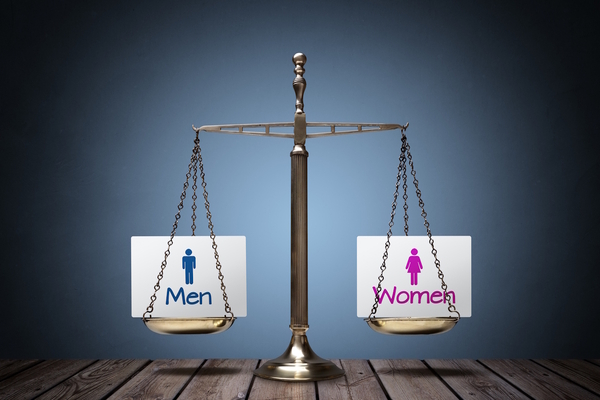Bias at work: learning from Kamala Harris

Lauren Neal at Valued at Work describes how Kamala Harris’s media portrayal highlights the unequal treatment of women in the workplace
As we approach the 2024 US presidential election, the media’s portrayal of Kamala Harris serves as a vivid illustration of the hurdles women continue to encounter in their careers. By confronting these biases and advocating for change, we can pave the way for a fairer future – both in our workplaces and in society at large.
With the upcoming presidential election, Kamala Harris is under intense scrutiny with much of the attention focusing on her gender and race rather than her qualifications. This unfair treatment is a familiar battle for women, especially women of colour, navigating leadership roles in both politics and in business.
Understanding this dynamic allows us to highlight the systemic inequalities faced by women in the corporate world – where they are often compelled to justify their competence and legitimacy – and create sustainable change in the workplace.
Unequal scrutiny of Kamala Harris
Kamala Harris, the first female vice president of the United States, has faced gendered and racially charged media scrutiny. Her presidential campaign has magnified this trend, with much of the coverage emphasising her identity as a woman of colour rather than on her extensive qualifications.
In contrast, Donald Trump receives media focus primarily for his policies and controversies. Trump’s posts and rhetoric often spark debate, but the scrutiny he faces is primarily political – not personal. Harris, meanwhile, is frequently portrayed as being too emotional, aggressive, or unqualified despite her considerable experience.
For instance, Trump’s derogatory comments implying Harris “slept her way to the top” are rooted in misogyny. Despite her impressive career as a US senator and attorney general, the narrative persists that her success is due to personal connections rather than hard work, effort, and competency. This reflects a societal belief that women, particularly women of colour, cannot achieve success without assistance from others.
This double standard is prevalent in corporate environments, where women in executive roles often contend with assumptions that their advancement is a result of networking or being the ‘DEI hire’ rather than succeeding based on merit. These biases contribute to a culture that undermines a woman’s authority, damages her reputation, and limits her opportunities for career advancement.
Kamala Harris’s experience
Harris’ experience highlights the challenges that many women around the world face in male-dominated sectors. Recent studies have shown that women in leadership roles, like Harris, are more likely to be evaluated based on their gender or appearance rather than their professional qualifications and competency.
This focus perpetuates stereotypes that diminish their contributions and achievements, often resulting in missed opportunities for promotions or critical assignments, while their male colleagues progress with their careers being judged on merit.
Harris has faced numerous false narratives about her rise to power – from accusations of inappropriate relationships to claims of being a mere figurehead. This mirrors the experiences of countless women in corporate settings who, despite their hard work and competence, must contend with whispers and biases about their achievements.
It is unfortunate that sexist misconceptions such as these are frequently echoed in the workplace, highlighting the barriers women continue to face as they climb the corporate ladder.
Strategies for change
Harris’ treatment by the media sheds light on the gender biases that continue to persist in leadership, both in politics and in business. However, her experience also serves as a rallying cry for change. To change this narrative, we must address these biases head-on.
Here are some key steps:
- Acknowledge bias: Organisations must recognise and confront gender bias, ensuring women are evaluated based on their competency and potential, not their demographic.
- Focus on achievements: Women should be recognised for their skills and accomplishments, not just for being the “first” or “only” in their roles.
- Constructive feedback: Feedback should be based on actual performance, avoiding unnecessary critiques about appearance or personality traits.
- Equal standards: Women should be given the same opportunities as men to learn from mistakes without facing disproportionate penalties.
- Support for leadership: Providing equal mentorship and leadership opportunities is critical for breaking down barriers for women.
Challenging bias
As the election day approaches, we must acknowledge the parallels between Harris’ media portrayal and the experiences of women in today’s corporate environments. Her treatment shines a light on the double standards that exist and offers an opportunity for reflection on how we, as leaders, can dismantle these barriers.
By confronting and challenging these biases, both in media narratives and workplace cultures, we can foster more equitable environments for all women, enabling them to thrive based on their true merit and abilities.
Lauren Neal is Founder and Chief Programme Creator at Valued at Work, a consultancy that creates workplace cultures where no one wants to leave, in traditionally male-dominated sectors. She is the author of ’Valued at Work: Shining a Light on Bias to Engage, Enable, and Retain Women in STEM’ an Amazon #1 best-seller
Main image courtesy of iStockPhoto.com and wildpixel

Business Reporter Team
Related Articles
Most Viewed
Winston House, 3rd Floor, Units 306-309, 2-4 Dollis Park, London, N3 1HF
23-29 Hendon Lane, London, N3 1RT
020 8349 4363
© 2024, Lyonsdown Limited. Business Reporter® is a registered trademark of Lyonsdown Ltd. VAT registration number: 830519543





